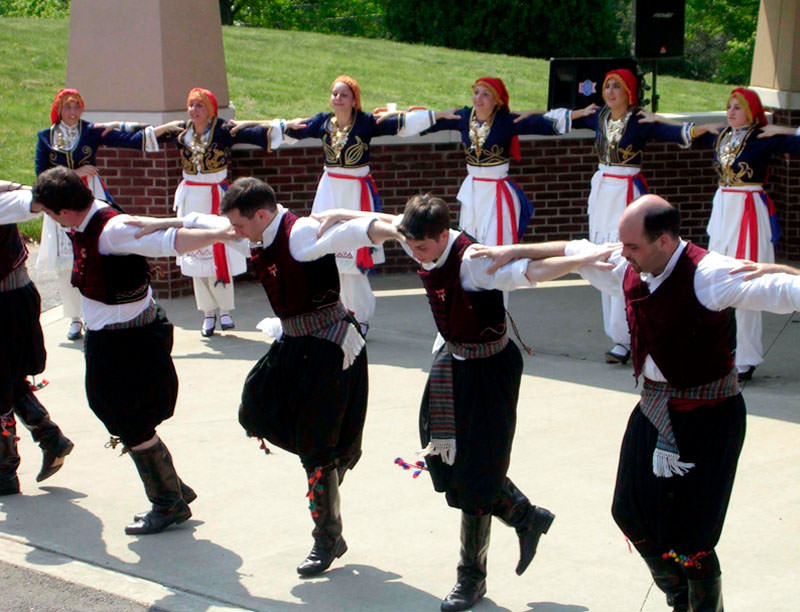Greece is a multi-cultural country of great and diverse interests. It has been influenced by its location at the confluence of the East and the West and by the continued occupation of Greece and its people from the Romans until its independence from the Ottoman Empire in the 19th Century. So, here’s I will share about the cultures of Greece. Which is it start from music, dance, festivals, clothing, and language
1)Music
Among the musical culture in Greece that I have just discovered is that it has an unbelievable diversity due to the creative Greek assimilation of the different influences of Eastern and Western Asian and European cultures. This is because music is an important aspect of everyday Greek culture. It has a long history dating back to Ancient times, where poetry, dance and music were inseparable and played an important role in the daily life of the ancient Greeks. In addition, it states that music and musical instruments are an important part of Greek history and life. Examples of musical instruments used in Greek folk songs are the lyre and laouto (lute), tambouras and gaida (bagpipe), zournas (shawm), and viola (violin). Not forgetting it made me excited to see and hear musical instruments and music in Greece. Next, let's see what other interesting culture is in Greece.
2)Dance
Greece is one of the few countries in the world where folk dances are as alive today as they were in ancient times. Dance has always played an important role in Greek life. It is an expression of human feelings and daily life. The Greeks would dance at religious festivals or ceremonies for them to dance to ensure fertility, to prepare for war and to celebrate victory. Thus, they also dance at weddings, to overcome depression and to cure physical ailments. Almost every dance has a story to tell. An example of a dance that I have seen in front of my eyes is the Sirtaki, probably one of the most famous Greek dances that is famous all over the world. It’s way of dancing with alternating slow and fast steps from the hasapiko dance, sirtaki was born. It is danced in a line or circle, with hands placed on their neighbour’s shoulders.
3)Festivals
What I discovered while in Greece is that there are many types of festivals in Greece that mostly take place in the summer. In fact, the festival has a religious basis and it follows the Orthodox calendar. The Orthodox calendar is similar to the Catholic calendar, except for the occasional Easter. Greek festivals are a part of Greek culture. For example, The Athens Epidaurus Greek Festival takes place every summer (from June to August) and includes various performances, such as modern theatre, ancient drama, ballet, opera, jazz and classical music concerts and art exhibitions. The event took place in various theatres around Athens. In fact, the highlight of the festival is the performance of ancient dramas that are displayed on summer weekends in Epidaurus. It really excited me after seeing it there.
4)Clothing
Next I went to a museum or on the street that had statues of ancient Greeks who wore simple clothes that covered their bodies. To my knowledge when told by the people there, they told that the Chiton and the peplos were both simple garments made of a rectangular piece of cloth, with a hole cut out for the head. Thus, the peplos is sleeveless, while the chiton covers the arms. For this, people can wear a robe called a himation. These clothes are usually made of wool. Very unique and creative, isn't it?. Next, let's see what other cultures there are in Greece.
5)Language
Since language constitutes one of the most important elements of Greek culture and its best transmitter, it is interesting to see how the Greeks speak today, how the Ancient Greek language became the modern one known today. The Greek language is part of the Indo-European family of languages. Unlike other languages that branch off of Indo-European, the Greek language doesn’t have any offshoots. For instance, the Latin language morphed into French, Italian, Spanish, and others. However, the language has evolved over the centuries and the modern Greek language that we know today is different in a lot of ways from the language that was spoken in Ancient Greece. They are, however, still considered the same language. Modern Greek has simply evolved.
.jpg/1200px-Lute_(by_Princess_Ruto%2C_2013-02-11).jpg)

No comments:
Post a Comment